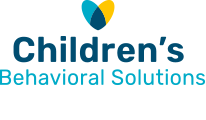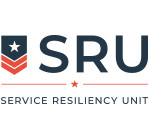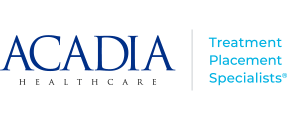Medication-assisted treatment (MAT) can play a crucial role in helping individuals overcome their struggles with addiction. Acadia Healthcare’s network of treatment facilities incorporates the use of MAT under the supervision of trained professionals to help individuals who are suffering from addictions start the path to recovery.
To view this embedded video, please edit your cookie preferences and allow Performance & Functionality cookies.
Watch to Learn More About Our Comprehensive Treatment Centers
Understanding Medication-Assisted Treatment
Overcoming an addiction may be one of the most challenging endeavors an individual can experience. Without professional help, an individual is likely to remain trapped in the vicious cycle of substance abuse, unable to break free from this potentially deadly situation. However, seeking professional treatment can help individuals overcome their substance use disorders and live more fulfilling lives.
Acadia Healthcare owns and operates comprehensive treatment clinics (CTCs) at a multitude of locations throughout the country where individuals can receive medication-assisted treatment (MAT). MAT is available to adults age 18 and older and is designed specifically to treat opioid addiction. MAT typically involves both medication and therapy to treat an individual’s opioid use disorder. Methadone is the most commonly used medication in MAT programs, but other medications might include Subutex, Suboxone, or Vivitrol. These medications don’t replace drugs like heroin, morphine, or codeine. Instead, they block the euphoric effects of opioid drugs, lessen the painful symptoms associated with opioid withdrawal, and reduce an individual’s cravings for more of the substance. This can help people who are struggling with addiction to safely detox without experiencing painful withdrawal symptoms or distressing cravings.
In addition to Acadia’s network of comprehensive treatment clinics, many additional treatment facilities within our organization offer medication-assisted treatment to help people end the cycle of addiction. When an individual chooses an Acadia Healthcare treatment facility to overcome their addiction, they take an essential step toward a healthier tomorrow and a more promising future.
Why Consider Medication-Assisted Treatment
Even short-term use of both illegal and prescription opioid drugs can cause withdrawal symptoms within hours of the last dose. Trying to withdraw from those drugs without professional help can be extremely distressing and may lead to future relapse. Withdrawal symptoms for short-acting opioids can start within six to 12 hours of the last dose, while withdrawal symptoms for long-acting opioids can start within 30 hours of the last dose. Opioid withdrawal symptoms usually peak within three days but can last for a week or more.
The most common symptoms of opioid withdrawal include nausea, muscle cramping, depression, agitation, anxiety, and cravings for the substance. But some people also experience trouble falling or staying asleep, profuse sweating, a racing heart, high blood pressure, fever, and crying spells. At the three-day mark, many people typically experience vomiting, diarrhea, stomach cramps, and severe cravings. Going through these withdrawal symptoms without the help of a trained medical professional can be exceptionally challenging.
Medication-assisted treatment offered through Acadia Healthcare’s treatment facilities include both medication and therapeutic interventions that are intended to help individuals focus on their healing and recovery processes without the constant struggle of the overpowering cravings and uncomfortable physical symptoms of withdrawal. Individuals who receive MAT at a facility within Acadia’s network learn how to understand and process what led them to begin using drugs and develop the skills and confidence they need to maintain their recovery goals.
Types of Medication-Assisted Treatment Offered Through Acadia Healthcare
Acadia Healthcare offers a variety of medication-assisted treatment (MAT) options for individuals who are facing addiction. By participating in a MAT program at one of Acadia Healthcare’s treatment facilities or comprehensive treatment clinics, individuals have the opportunity to maximize their treatment experience and begin to realize a life that no longer includes the use of opioids. The following are the medications and therapeutic interventions commonly used as part of medication-assisted treatment services:
Methadone: One of the most studied medications offered within medication-assisted treatment, methadone blocks the effects of opioid drugs such as heroin, morphine, codeine, or prescription painkillers. Methadone is administered once a day through a dissolvable tablet, pill, liquid solution, or wafer. This prescription medication decreases cravings for continued opioid use and eases the physical symptoms of withdrawal that emerge once an individual is no longer abusing heroin and/or prescription painkillers.
Subutex: Since it was first approved in 2002 by the U.S. Food and Drug Administration (FDA) for use within medication-assisted treatment programs, Subutex has been an excellent medication option for those struggling with addiction. Subutex contains buprenorphine, which was previously used as a pain reliever, and is often prescribed to individuals at the start of treatment with the goal of transitioning the individual to Suboxone for long-term maintenance. Like methadone, Subutex blocks opioid cravings and physical withdrawal symptoms with little to no risk.
Suboxone: Comprised of buprenorphine and Naloxone, Suboxone is an FDA-approved medication that has helped numerous individuals break free from the grips of opioid addiction. Similar to methadone and Subutex, Suboxone helps alleviate the physical symptoms of withdrawal and decrease cravings for continued opioid use. Additionally, if an individual attempts to abuse opioids such as heroin or prescription painkillers while taking Suboxone, that person will experience adverse effects because Naloxone counteracts the effects that opioids have on the brain. This medication is also often used as a long-term medication option follow the use of Subutex at the start of treatment.
Vivitrol: As medication-assisted treatment’s only injectable medication, Vivitrol has been approved by the FDA since 2010 for use in programs that treat opioid addiction. Administered only once a month, this Naltrexone-based medication wards off opioid cravings and alleviates the physical symptoms of withdrawal. This medication is extremely effective at helping adults defeat addictions to opioids, and it has a proven track record of preventing individuals in recovery from experiencing relapse.
Individual therapy: Because a person’s mental and emotional health can contribute to the development of an opioid addiction, Acadia’s treatment facilities and comprehensive treatment clinics provide individual therapy opportunities to those who participate in medication-assisted treatment. Individual therapy sessions can be excellent forums in which individuals can openly share and process their thoughts, feelings, emotions, and experiences with a qualified therapist. Additionally, these sessions can serve as an optimal time to establish new short- and long-term goals.
Group therapy: To provide patients with as much support as possible, Acadia’s treatment facilities and comprehensive treatment clinics also offer group therapy opportunities. Group therapy sessions are led by experienced and compassionate professionals who offer guidance and establish a safe space in which patients can process their experiences with others who may have similar addiction-related challenges. These sessions can serve as a time for individuals to exchange support from their peers so they are able to maintain their goals while working toward recovery.
In order to determine which medications or blend of therapeutic interventions is best suited for a person’s needs, contact one of Acadia’s treatment facilities or comprehensive treatment clinics to schedule an assessment. Thorough assessments help staff members, including on-site doctors, nurses, and counselors, determine which medication is most appropriate and effective, and what type of therapeutic services will enable an individual to progress in their recovery.
Learn More
To learn more about the medication-assisted treatment offered through Acadia Healthcare’s treatment facilities and comprehensive treatment clinics, or to get more information about the other types of substance use disorder treatment services available, please contact an Acadia Healthcare facility near you today.






